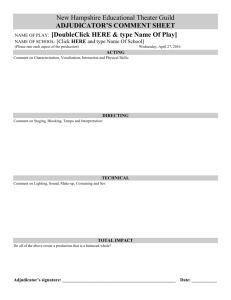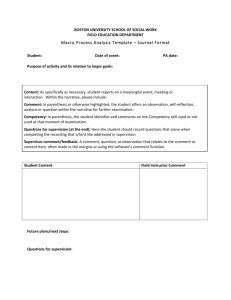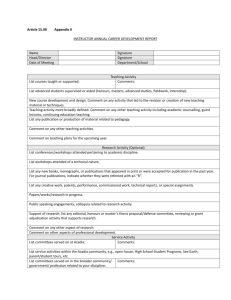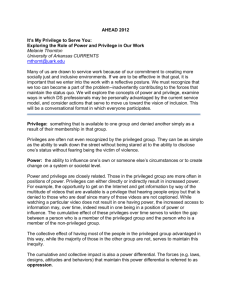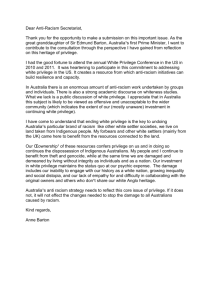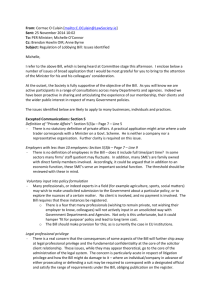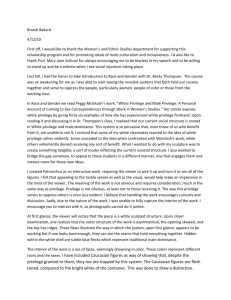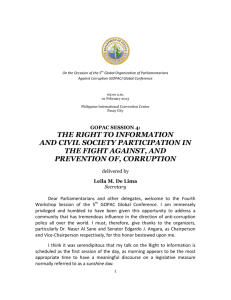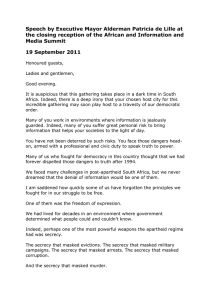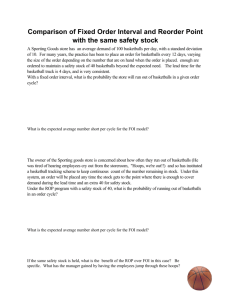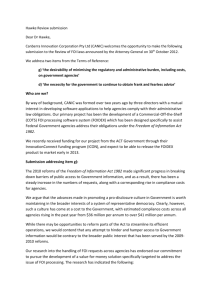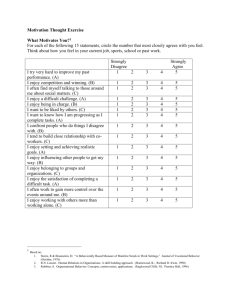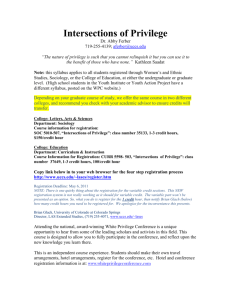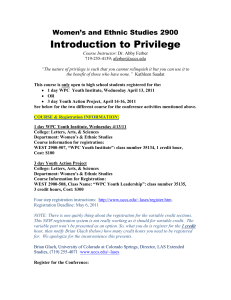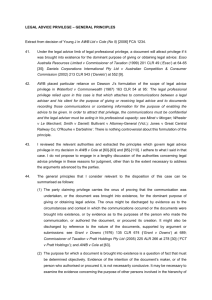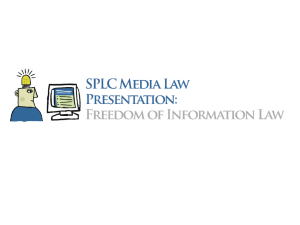P Timmins
advertisement
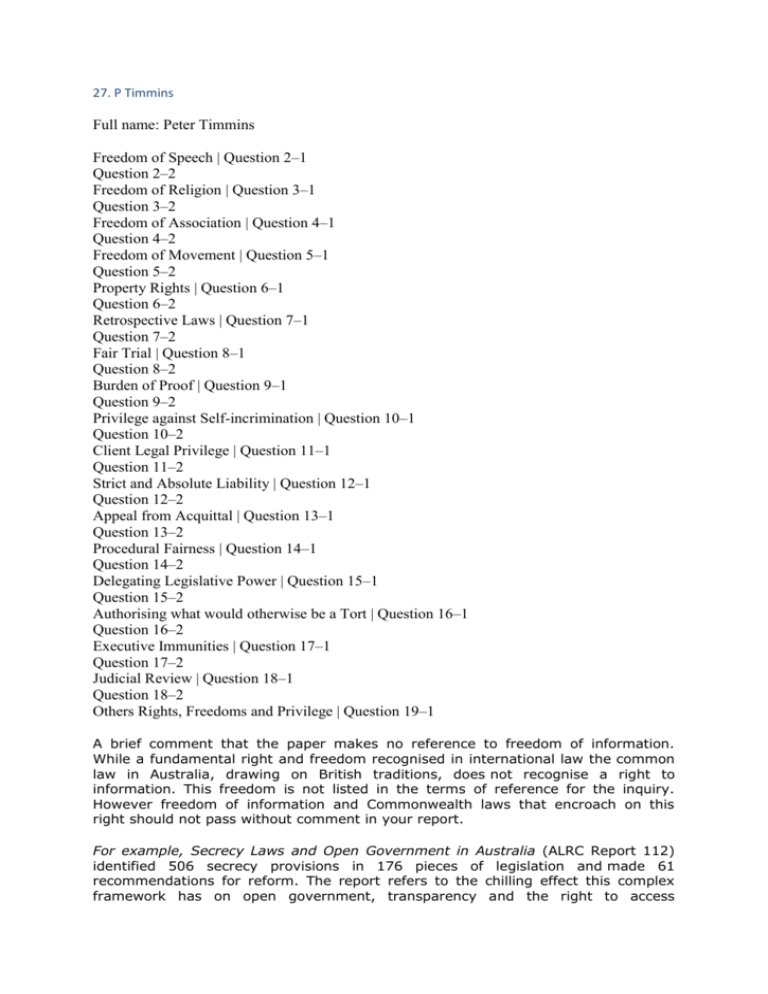
27. P Timmins Full name: Peter Timmins Freedom of Speech | Question 2–1 Question 2–2 Freedom of Religion | Question 3–1 Question 3–2 Freedom of Association | Question 4–1 Question 4–2 Freedom of Movement | Question 5–1 Question 5–2 Property Rights | Question 6–1 Question 6–2 Retrospective Laws | Question 7–1 Question 7–2 Fair Trial | Question 8–1 Question 8–2 Burden of Proof | Question 9–1 Question 9–2 Privilege against Self-incrimination | Question 10–1 Question 10–2 Client Legal Privilege | Question 11–1 Question 11–2 Strict and Absolute Liability | Question 12–1 Question 12–2 Appeal from Acquittal | Question 13–1 Question 13–2 Procedural Fairness | Question 14–1 Question 14–2 Delegating Legislative Power | Question 15–1 Question 15–2 Authorising what would otherwise be a Tort | Question 16–1 Question 16–2 Executive Immunities | Question 17–1 Question 17–2 Judicial Review | Question 18–1 Question 18–2 Others Rights, Freedoms and Privilege | Question 19–1 A brief comment that the paper makes no reference to freedom of information. While a fundamental right and freedom recognised in international law the common law in Australia, drawing on British traditions, does not recognise a right to information. This freedom is not listed in the terms of reference for the inquiry. However freedom of information and Commonwealth laws that encroach on this right should not pass without comment in your report. For example, Secrecy Laws and Open Government in Australia (ALRC Report 112) identified 506 secrecy provisions in 176 pieces of legislation and made 61 recommendations for reform. The report refers to the chilling effect this complex framework has on open government, transparency and the right to access information. The report was tabled in March 2010 and has not, as yet, been implemented. Many aspects of the Freedom of Information Act fall short of emerging international standards. The statutory review of the FOI act conducted by Dr Allan Hawke in 2012-13 recommended a comprehensive review of the kind he was unable to undertake. There has been no government response. Other comments? Freedom of information and human rights UNESCO describes freedom of information as "an integral part of the fundamental right of freedom of expression, as recognized by Resolution 59 of the UN General Assembly adopted in 1946, as well as by Article 19 of the Universal Declaration of Human Rights (1948), which states that the fundamental right of freedom of expression encompasses the freedom to “to seek, receive and impart information and ideas through any media and regardless of frontiers”. FOI has also been enshrined as a corollary of freedom of expression in other major international instruments, including the International Covenant on Civil and Political Rights (1966) and the American Convention on Human Rights (1969)." http://www.unesco.org/new/en/communication-and-information/freedom-ofexpression/freedom-of-information/ The United Nations' Human Rights Committee (General Comment 34) states that freedom of information is integral to human rights under international law "essential for the promotion and protection of human rights."Access to government information, which the committee considers an element of freedom of expression, is an "indispensable condition[] for the full development of the person" and "the foundation stone for every free and democratic society. http://www2.ohchr.org/english/bodies/hrc/docs/GC34.pdf File 1 File 2
